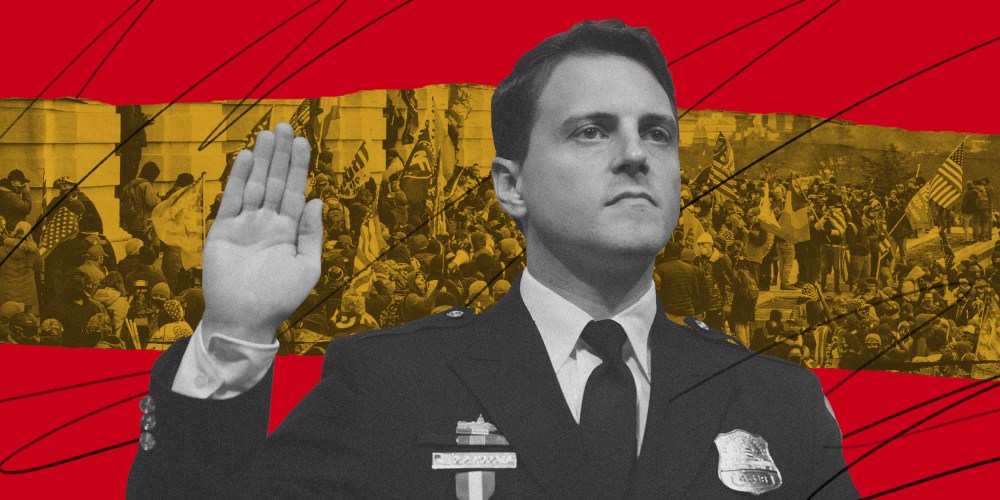U.S. Capitol and Washington, D.C., police officers offered chilling and emotional testimony Tuesday before the House select committee on the Jan. 6 insurrection. Their responses had a lot in common: They all described violent assaults, fears that they would die and ongoing post-traumatic stress and psychological repercussions from the attack.
The officers were also unified in their choice of words: They repeatedly described the rioters as “terrorists.”
The Jan. 6 attack on the U.S. Capitol has been called many things — a siege, an insurrection, a coup.
The Jan. 6 attack on the Capitol has been called many things — a siege, an insurrection, a coup. But as the months have passed, some Republicans have pushed back against that language, arguing that the rioters were mostly peaceful protesters, that those who breached the Capitol were merely an unorganized and undisciplined mob or even, according to Rep. Andrew Clyde, R-Ga., that they were people walking around in a “normal tourist visit.”
We’ve seen this kind of semantic smokescreen before, typically when white male mass shooters and terrorists are described as unhinged, crazy or insane. White men who commit extremist attacks are more likely to be described as mentally ill, while other terrorists are typically seen as being motivated purely by ideology. This has the effect of making white violent extremists seem less calculated — and less culpable — than they actually are.

The same dynamic is at play in the (somehow still ongoing) fight over how to label the events of Jan. 6. The most important outcome of Tuesday’s select committee hearing may well be the clear and unequivocal repudiation of attempts to whitewash the attacks with softer language or labels.
The officers’ firsthand accounts of what they encountered make it clear that the assault on the Capitol was an act of domestic terrorism. Officers were expecting civil disobedience, Capitol Police Officer Harry Dunn said, but they were met with incredible violence. They encountered attackers equipped with tactical gear for military-type engagements, who physically assaulted them in hand-to-hand combat for hours. The attackers gouged officers’ eyes; beat them with baseball bats, hockey sticks, rebar and flagpoles; and sprayed pepper spray and bear spray in their faces. Officer Dunn described being repeatedly called the n-word during the assault.

Capitol Police Sgt. Aquilino Gonell described the fighting as like something “from a medieval battle,” saying he thought he was going to die. Metropolitan Police Officer Michael Fanone described being shocked with a stun gun and hearing rioters chant “kill him with his own gun“; he was later diagnosed with a concussion and a traumatic brain injury as a result of the violent assault. “You will die on your knees,” Washington Police Officer Daniel Hodges said an insurrectionist told him.
The emotional testimony brought Reps. Adam Kinzinger, R-Ill., and Adam Schiff, D-Calif., to tears. It also should erase any lingering ambiguity.












